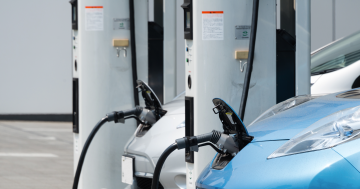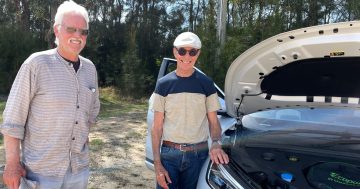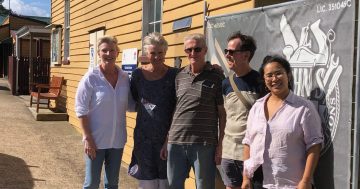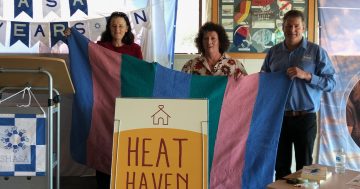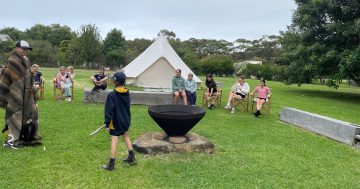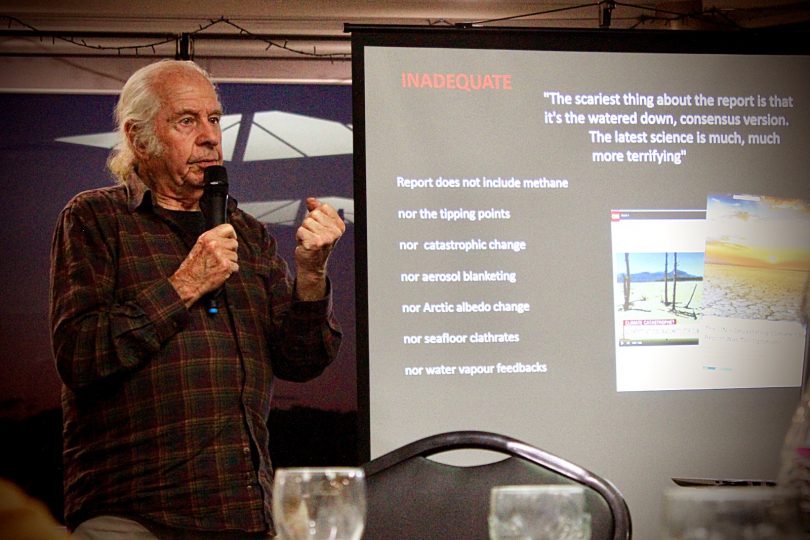
John James presents to Narooma Rotary. Photo: Kat McCarthy
The Far South Coast can be resilient against the worst effects of climate change if residents and community groups act now to future-proof, Brogo architect and psychologist John James said.
Speaking at a presentation hosted by Narooma Rotary, Mr James, a historian who has studied the science of our changing time for four decades, said community-led action was needed to preserve our quality of life in an uncertain time.
“Unites Nations scientific reports say we have less than a dozen years to seriously reduce pollution or the world will become unacceptably hot,” Mr James told a group of more than 40 locals, including members of the Southcoast Health and Sustainability Alliance (SHASA) and Sustainable Agriculture & Gardening Eurobodalla (SAGE).
“This is a serious warning, and nowhere has it been heeded. Emissions continue to rise with no pause in sight and the world heats with [them].”
Mr James said governments’ lack of acknowledgement and action on the climate emergency meant a grass-roots response was the only way forward. “Even now we can see that government is not dealing with the coming issues and blind to our deepest fears,” he said.
Mr James called for an unflinching consideration of the potential impacts on fuel and food security; transport, communication and energy infrastructure; and access to essential services and medical supplies.
“We will soon have temperatures where you can’t go outside in the middle of the day, for dozens of days every year,” he said. “So, how would you farm? How would you shop? How would you get food? How would your pets deal with that? What can we grow in those temperatures, especially as water is increasingly uncertain? Are we prepared?”
The Far South Coast’s isolation, moderate climate and strong networks made it well-placed to plan for a society altered by a rapidly-changing climate, Mr James said.
“We have certain natural qualities that maintain climate equilibrium. Our communities are closer than any I know in the world. It doesn’t mean we won’t suffer as the climate deteriorates, but the area’s uniqueness puts us ahead.”
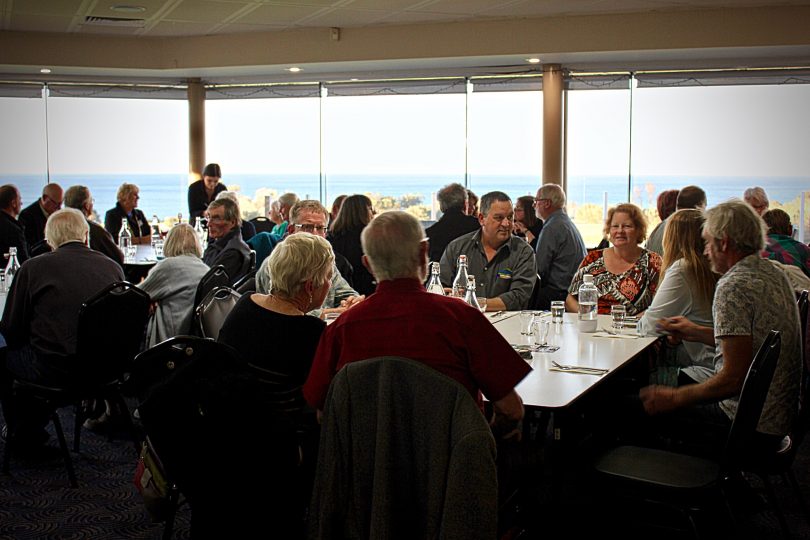
The attending crowd at the Rotary dinner/lecture. Photo: Kat McCarthy.
Mr James believes planning must be undertaken while current social infrastructure is still in place. “We need to start by simply considering the various questions of ‘if this happened, what would I do?’,” he said. “Civic clubs are the natural organisations to start the planning.”
Bergalia resident Julie Taylor Mills said she attended the presentation because she’s deeply concerned about climate change.
“When we bought our property south of Moruya three years ago, the water tanks were full, and they’ve never filled up again,” she said.
“Both dams were completely full, but with the persistent and ongoing drought, now one is completely empty and the other is about half full. And any rain we get seems to be drawn up into existing trees and not make it to the dams.
“Over the three years we’ve planted 2000 trees, but of that only 800 have survived and most of them are just limping along. While I appreciate how much better off we are than out west, it is still deeply worrying.”
Ms Taylor Mills echoed Mr James’ contention about the region’s great potential for resilience.
“Eurobodalla Shire has a really engaged, environmentally and socially aware community, so this would be a community well able to put together the sorts of structures and contingency plans for an ongoing climate emergency situation – for bushfires, ongoing droughts, major storm surges and a breakdown of our food supply,” she said.
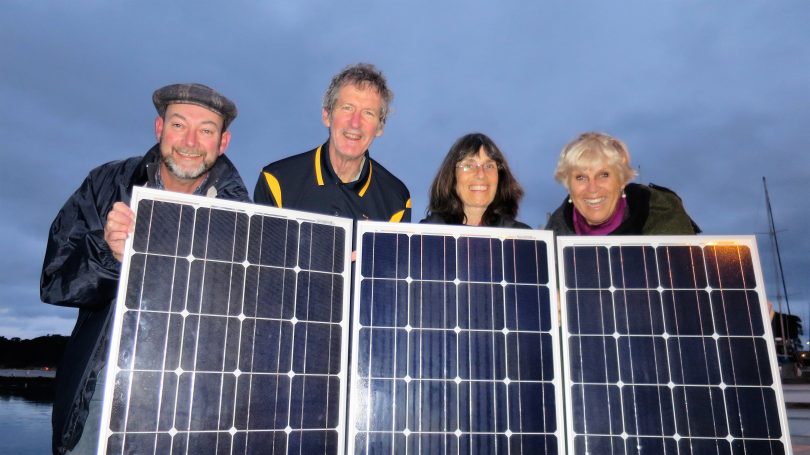
Getting ready for Narooma Rotary Renewable Energy Expo on Saturday, November 2 – Rolf Gimmel, left, Expo coordinator Frank Eden, Iris Domeier and President Ange Ulrichsen. Photo: Supplied
SHASA committee member Frank Eden, convener of the upcoming Narooma Rotary Renewable Energy Expo, said Mr James’ presentation highlighted the importance of considering potential risks.
“In Australia, we have a ‘she’ll be right’ attitude, but it’s not always right to be so blasé about potential risks,” Mr Eden said.
“We’re incredibly dependant on electricity and if the fridge stops working and your food goes bad or there are issues with food supply, we’ll be in trouble.”
Words by Kat McCarthy






